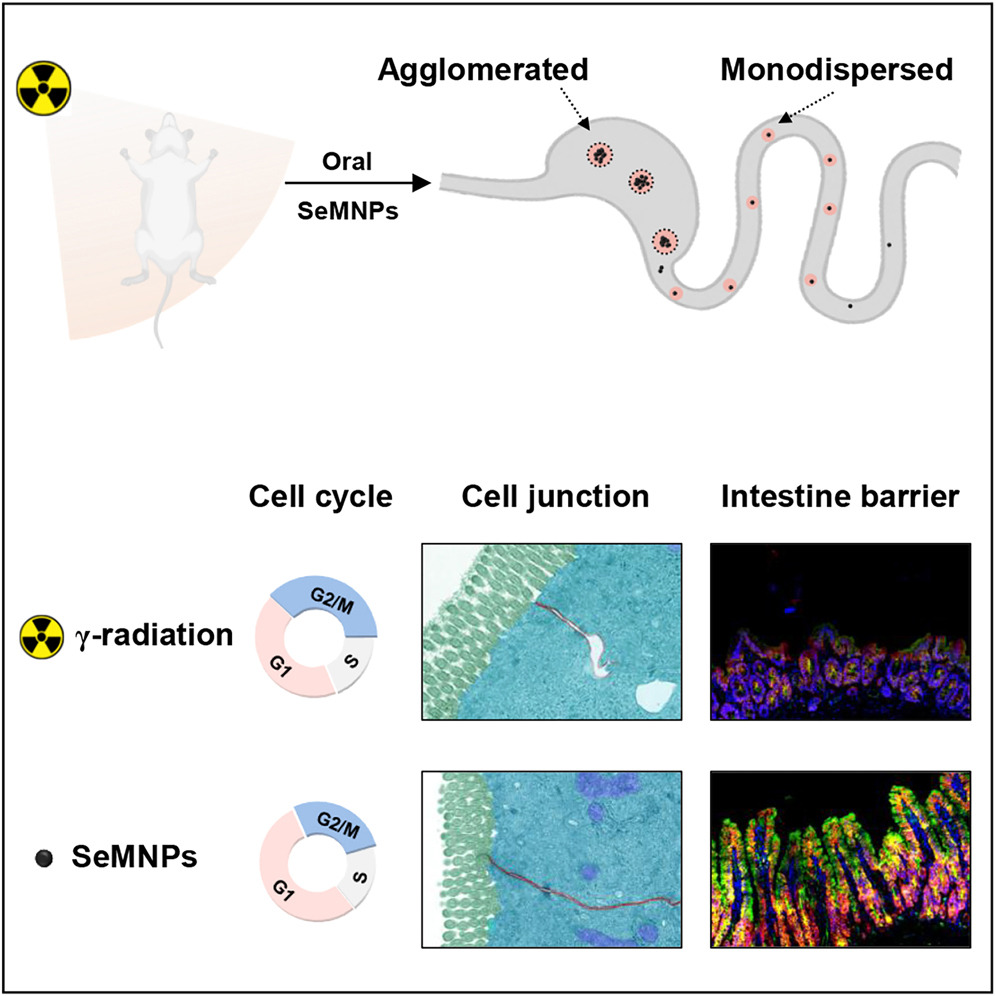Wei Chen, Hanjie Zhu, Ruotong Deng, Yuqing Qiao, Qing Ruan, Junbo Zhang, Yongxian Zhang, Yantao Niu, Huaping Xu*, Wei Cao*
Cell Biomaterials. 2025. 1(11).
Radiation-induced intestine injury is a common clinical complication in radiotherapy for abdominal and pelvic cancers. To date, oral radioprotective agents are still extremely rare because the harsh gastrointestinal environment would denature the drugs. Melanin, a natural polymer, has attracted attention for its potential radioprotective properties. However, the inherent low Z elements in natural melanin offer limited defense against radiation energy. Hence, a selenocysteine-modified melanin nanoparticles (SeMNPs) strategy for intestinal radioprotection is proposed. Introducing selenium increases the attenuation of melanin to radiation energy. This material exhibits remarkable radiation protection properties, while maintaining stable activity in the gastrointestinal environment and enabling precise regulation of release kinetics, making it ideal for oral treatment of intestinal injury. SeMNPs demonstrate effective mitigation of intestinal injury and increase the survival rate of mice from 20% to 100% after total body irradiation. This highlights the potential of melanin engineering for radioprotection in vivo.

